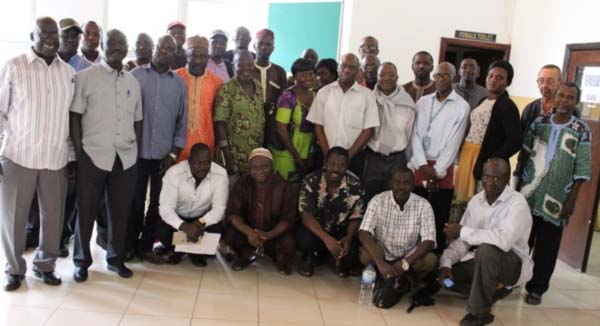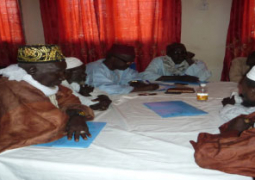
The GGWSSI Gambia focal point, Lamin F. Jawara, who is the deputy permanent secretary, Ministry of the Environment, said the general objective of the GGWSSI is to improve resilience to climate change for increased food security in the sub-Sahara.
This would be achieved through actions and measures that promote and provide support to proven or innovative approaches to integrated land management and water control.
Mr Jawara said the GGWSSI offers “a unique opportunity” to effect “significant changes” in scaling up governments’ investments to promote food security and combat poverty by strengthening good practices in agriculture, rural infrastructure and implementation of social protection initiatives in favour of households vulnerable to climate risks.
Based on a learning-by-doing approach, the GGWSSI aims at increasingly applying lessons from best practices on climate resilience to development policies and practices and building its approach on on-going programmes.
Kanimang Camara who represented the FAO country office, in his presentation on the AD project, said the overall objective of the project is to contribute to poverty alleviation, ending hunger, and improving resilience to climate change using a landscape approach.
The specific objective of the project is to improve the condition and productivity of landscapes affected by desertification, land degradation and drought in three regions of The Gambia: North Bank, north Central River, and Upper River regions.
Mr Camara said that through the project, the livelihoods of the rural communities will be greatly enhanced through stepwise legal transfer of forest resources and empowering beneficiary communities with the technical skills to manage the available resources on sustainable basis.
He said the implementation of the project activities will contribute to the efforts of controlling land degradation and deforestation processes through effective participation of local beneficiaries.
The FAO officials said food insecurity, poverty and unemployment which are affecting negatively the livelihoods of the rural poor communities will be addressed by the project through enhanced farm production and productivity.




